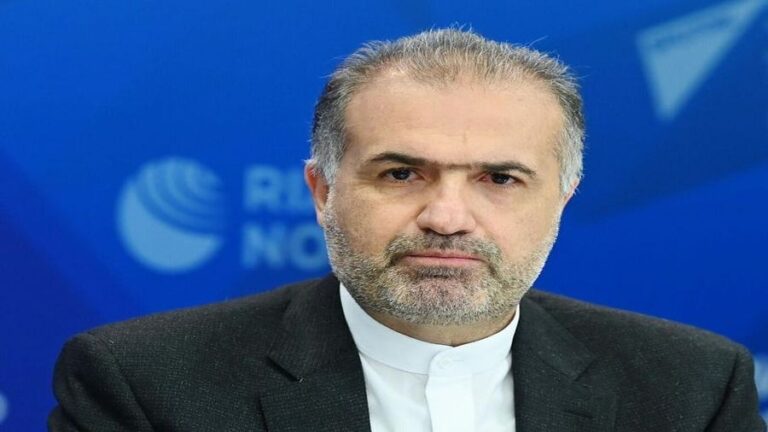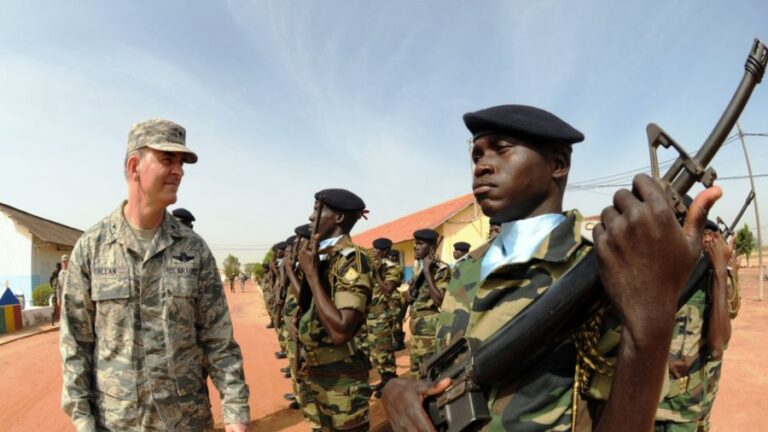Russia: Strengthening Foothold in Middle East and North Africa
Russian Izvestia daily reported on October 10, that Moscow and Cairo are holding talks on the possible leasing by Russia of some Egyptian military facilities, including the former Soviet Air Force base in the city of Sidi Barrani located about 95 km (60 miles) east of the border with Libya.
According to the newspaper, the base may become operational by 2019.
If reached, the agreement will become a milestone in the relationship between the two countries. The geographic proximity of the base to Libya is especially important as this country may become the next battlefield against terrorism.
The Egypt-based facility could serve as a larger, more secure Tartus-like port for Russian ships operating in the Mediterranean. It could also host Russian military personnel servicing Egypt’s new weapons systems supplied by Russia, as well as instructors.
The military cooperation between the two countries has been on the rise recently.
In 2013, the US limited its military aid to Egypt. Rebuking Egypt for lack of progress towards reinstating democracy, Washington announced that it was freezing a sizable portion of the $1.5 billion it provided to Egypt annually. It suspended the delivery Apache helicopters, Harpoon anti-ship missiles, F-16 fighter jets and canceled bi-annual joint military exercises. The Washington’s moves provided an impetus to Russian-Egyptian military cooperation. In response to US unfriendly actions, Cairo promptly signed arms deals with Russia worth up to $5 billion by 2015.
The agreements included 50 MiG-29M combat aircraft, Buk-M2E (SA-SA-17 Grizzly) and Antey-2500 (SA-23 Gladiator / Giant) aid defense systems and about 50Ka-52K helicopters for Egypt’s new Mistral-class assault ships bought in France. The ships had been built for Russia but the deal was suspended by France in September 2015 under US pressure. Russia is to supply equipment and aviation for Egyptian Mistrals. The first sea-based MiG-29Ms are expected to be delivered by the end of 2016.
The two countries signed several agreements for the renovation of military production factories in Egypt.
In May, Russia and Egypt signed the GLONASS protocol, which had granted to Egypt the access to the Russian global satellite positioning system.
In early September, a high-ranking Egyptian military delegation headed by Minister of Defense Sedky Sobhy and Minister of Military Production Mohamed Al-Assar, visited Russia to discuss strategic cooperation. Back then the parties agreed to hold military exercises in October. Russian paratroopers will be transported to Egypt by Il-76 transport aircraft. The exercises between the Russian and Egyptian military will become regular events.
Developing no-strings-attached security cooperation, Russia and Egypt are moving to long-term close security relationship.
On the very same day the news about the Russia-Egypt talks came, Russian Deputy Defense Minister Nikolay Pankov told the lawmakers that Russia intends to establish a permanent naval base on the site of an existing facility it leases at the Syrian port of Tartus.
The relevant documents are being prepared to be submitted for ratification. The decision would allow Russia to operate more ships in the Mediterranean as they would have an enhanced facility for replenishment. Last week, Russia deployed Antey-2500 S-300 V4 surface-to air missiles to the naval facility.
Russia already has a permanent air base at Khmeimim in Syria’s Latakia province from which it launches air strikes against terrorists.
Many Arab countries are turning to military cooperation with Russia against the backdrop of its success in Syria.
On March 15th, 2016, King Mohamed VI visited Moscow to sign several important agreements, including the agreement on mutual protection of classified information on military and military-technical matters and the declaration on the fight against international terrorism. Morocco is interested in strengthening its military capabilities with Russian weapons. The Su-34 bomber grabbed the attention of Morocco after its performance in Syria. The two countries are discussing the feasibility of the Amur-1650 submarine sale to the Moroccan Navy. The Russian submarine will significantly boost Morocco’s capabilities carrying Club cruise missiles – an export variant of the Kalibr.
The submarine also features air-independent propulsion (AIP) plant designed to make it unnecessary for it to surface in order to recharge her batteries. Morocco and Russia hold divergent views on some international problems, like the situation in Syria, for instance. Moreover, Morocco is part of a Riyadh-led coalition fighting against Houthi rebels in Yemen. But the divergence of views does not hinder the cooperation.
Russian-Algerian defense cooperation is a success story. A significant set of agreements, worth a total of $7.5 billion, was signed in 2005-2006, under which Russia sold Algeria 28 Su-30MKA, 16 Yak-130 jet trainers and 185 T-90S tanks. In September 2015, Moscow and Algiers signed a contract for the delivery of 14 Su-30MKA fighters to Algeria in 2016-2017.
In 2014, the parties reached a $1 billion deal under which Algeria assembled 200 T-90 tanks using kits supplied by Russia’s state arms supplier Rosoboronexport – the largest export contract for main battle tanks in the world. The deal followed the 2010 sale of 185 T-90 tanks as well as a 2013 agreement to buy equipment to modernize 300 Soviet-supplied T-72 tanks. Russia is reportedly building two Kilo-class submarines for Algerian navy. It has recently delivered a satellite to Algeria to monitor the situation at the borders with Tunisia, Libya, Mali and Niger.
In late February, the two countries set out a roadmap for deepening bilateral economic and military cooperation during Russian Foreign Minister Sergei Lavrov’s visit to the country.
Tunisia is reportedly considering increasing military cooperation with Moscow. Tunisian interest in collaboration with Russia intensified in the wake of the March 7th Islamic State attacks on Ben Guerdane, where dozens of jihadis stormed the Tunisian town near the Libyan border, attacking army and police posts in a raid that killed at least 50 people, including civilians. The Russian government has pledged to provide helicopters, night-vision goggles and bullet-proof vests to Tunisian security forces to fight al-Qaida and the Islamic State group in North Africa.
In February, the largest Russian delegation in many years visited Iraq, pledging more weapons and aid to the Iraqi government.
The military cooperation encompasses the Persian Gulf. Russian Defense Minister Sergey Shoigu and Qatar’s State Minister for Defense Khalid bin Mohammad Al Attiyah signed a military cooperation agreement in September on the sidelines of the Army-2016 international military-technical forum in Kubinka near Moscow.
In 2015, the countries of the Middle East and North Africa (MENA) accounted for 36 percent of Russia’s defense deliveries, second only to Asia (42 percent). Algeria, Egypt, Iran, Iraq, and Syria have been Russia’s principal arms customers for decades. The performance of Russian weapons systems in the Syrian war, as well as Moscow’s staunch support of the ally in Damascus, boosts its clout.
Moscow bolsters its reputation of a reliable partner to those seeking to diversify their foreign policy. It is perceived as a pragmatic, savvy, no-nonsense player able to weigh in on regional matters by both diplomatic and military means. It boasts good relations with everyone in the region: Turkey and the Kurds, Syria and the US-led coalition, Iran and Saudi Arabia, Israel and Hezbollah. It has close ties with Jordan and Qatar, the countries of North Africa and Egypt – the Arab largest state. Thanks to its reputation, Russia is even invited to be a broker in the Libyan conflict.
The military operation in Syria has greatly raised its regional profile. It prevented Islamic extremists from turning Syria into a part of «caliphate» to encourage their supporters and sympathizers across the Muslim world. The trend is obvious – Russia is strengthening its clout and foothold in the region by leaps and bounds.
By Peter Korzun
Source: strategic-culture.org







